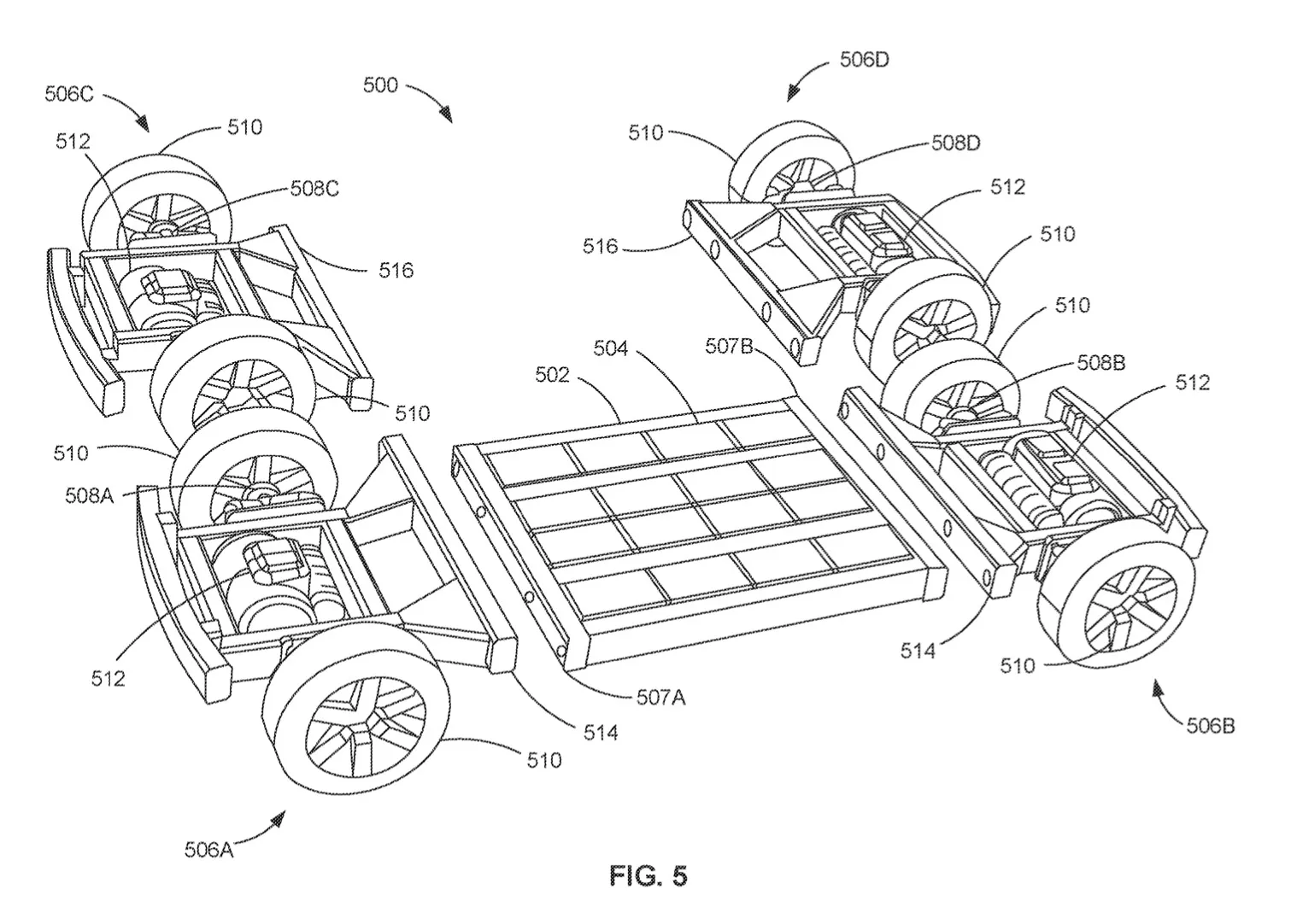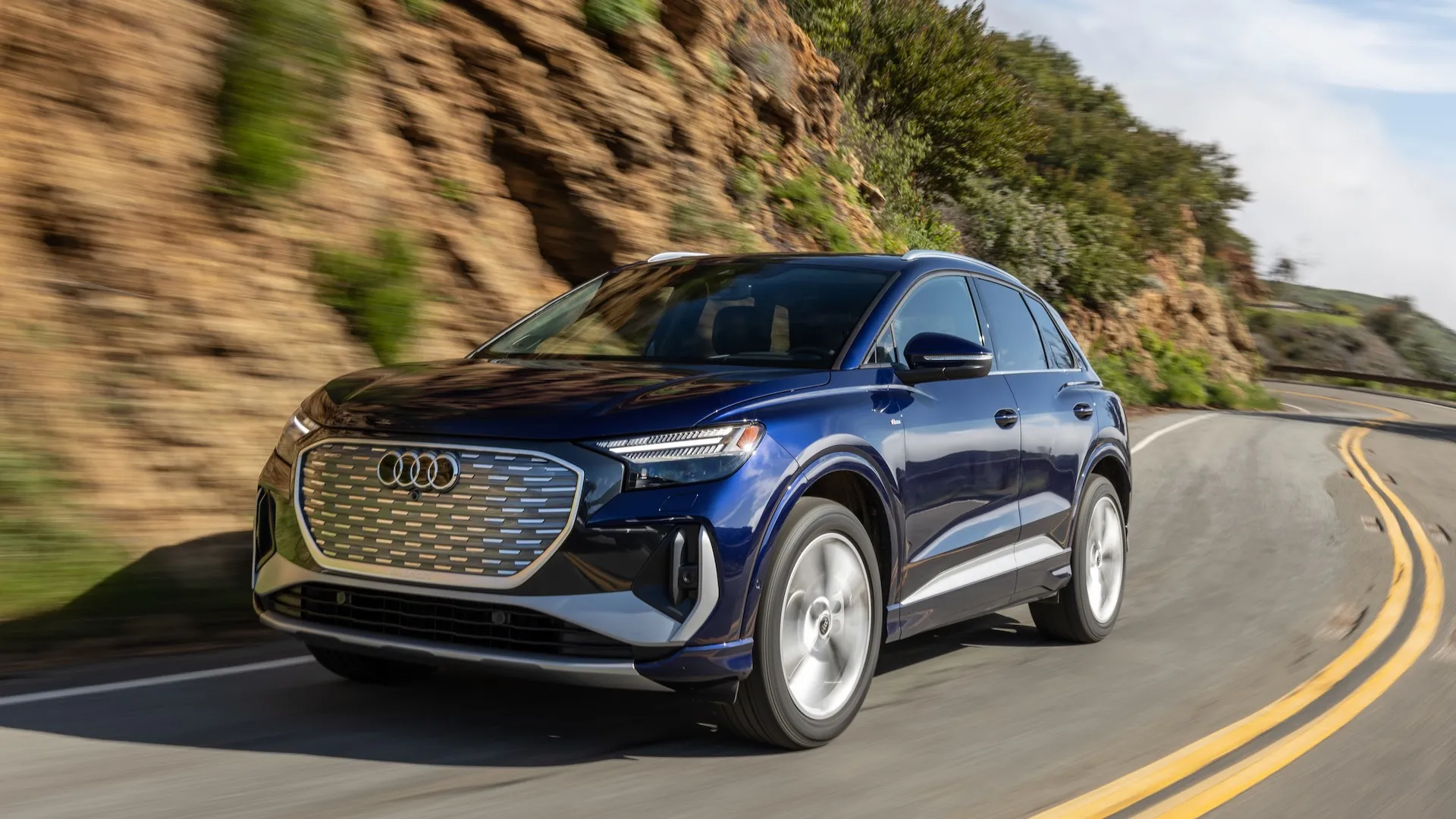
Automakers often discuss modular architectures that can be used for multiple models, but a newly surfaced Ford patent filing takes the concept of modularity to another level.
The application, which was published by the United States Patent and Trademark Office (USPTO) on Jan. 2, and originally filed on Apr. 28, 2021, essentially describes building an EV like a life-size model kit.
Assembly would start with a subframe built around the vehicle’s battery pack, with adjustable crossmembers and side rails to accommodate different models and their unique dimensions. Additional front and rear subframes with motors, suspension components, and wheels could then be bolted to the ends of this assembly.
Finally, a body is bolted on top of the rolling chassis. Ford uses an F-Series Super Duty as the illustration in the patent application, but claims this method could be applied to a number of different vehicle types.
Ford modular chassis patent image
The idea of a complete chassis with swappable bodies goes back to General Motors’ Autonomy and Hy-Wire concept cars of the early 2000s. And EV startup Canoo has designed a full “skateboard” chassis it aims to use for electric vans and possibly pickups. But Ford is proposing additional elements to further differentiate EV models.
The automaker suggests that wheel and suspension assemblies could be inverted to raise ground clearance for pickup trucks and SUVs, or lowered for sports cars. And the automaker discusses “performance packages” with different motors that can be easily swapped thanks to universal mounting hardware.
It’s unclear if Ford will put any of these ideas into practice. Automakers don’t always use the engineering work they patent on production vehicles, after all. And something as radical as this would likely require big changes at assembly plants, suppliers, and possibly crash structures.
Credit : Source Post






